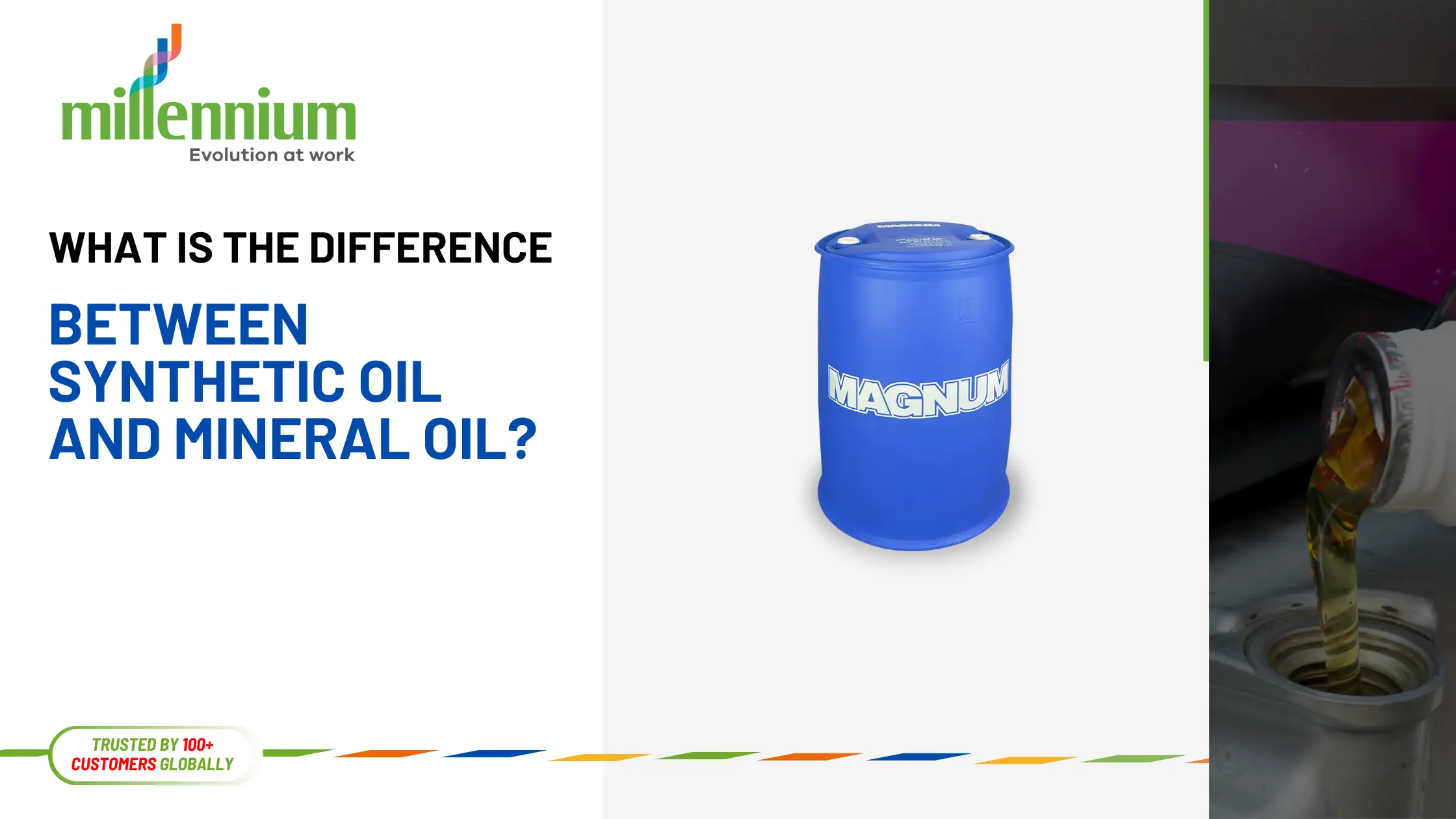Every engine requires motor oil to function properly. It provides a coating to moving parts, decreases friction and cools the engine. But, there is always confusion between synthetic oils and mineral oils once the car owners want to select an option for them. With this guide, you will find the most significant distinctions, the advantages of, and the best applications for each to make the best vehicle choice.
What is Synthetic Oil?
Synthetic oil is an artificial oil engineered to deliver the high standards required of oils in modern-day car engines. Its formulation offers it superiority, better performance, superior engine protection and longer durability than mineral oil.
How is Synthetic Oil Made?
Synthetic oil derives from chemically altered base oils. Many of these oils are processed in their molecular structure, to achieve isotropy and free from contaminants. This, in turn, makes synthetic oil more efficient in handling extreme conditions than this refined composition.
Types of Synthetic Oil
- Full Synthetic Oil: It is particularly utilized in applications requiring a high level of performance or intense climate conditions as it offers great performance.
- Synthetic Blend Oil: A low-cost strategy with synthetic and mineral oils and compares favorably to traditional mineral oil but is cheaper.
What is Mineral Oil?
Mineral oil, as its name suggests, is traditionally formulated engine oil produced from crude oil. For many years, it has been used for engine lubrication, and even today, many cars especially old ones, utilize it under normal operating conditions.
How is Mineral Oil Made?
Biomass, on the other hand, is complex and undergoes a refining process whereby crude oil is refined to obtain mineral oil. Both functional and technological additives are then incorporated to increase their protective characteristics and efficiency.
Types of Mineral Oil
- Conventional Mineral Oil: A typical buy for those who drive their car around normally and experience moderate weather conditions.
- High-Mileage Mineral Oil: It can be used solely for cars with a specified distance of more than 75000 miles. It provides additives that have a special effect on preventing leakage and wearing old-age car engines.
Key Differences Between Synthetic and Mineral Oil
Performance and Protection
- Synthetic Oil: Designed to perform well in the highest and lowest ranges of temperature conditions. It will decrease the wearing of the engines, withstand degradation, and improve its lubricating capability in high loads.
- Mineral Oil: It is rather good for simple cylinder protection however, for severe circumstances or under a high load, it is not as effective.
Cost and Durability
- Synthetic Oil: Even if it’s more expensive, it lasts longer, so you will need to change oil less often, which has a great impact on the total amount. This is especially advisable for those drivers who need value and steady long-term car usage.
- Mineral Oil: Easier on the pocket at this initial stage, and you condition that you change them regularly, so in the larger scheme of things, it is expensive.
Environmental Impact
- Synthetic Oil: With synthetic oil production consuming more energy, the good news is that it creates less waste as it lasts longer than other types of oil. The other is believed to be a better one for the environment.
- Mineral Oil: Even though its manufacture is easier, it is less sustainable due to the higher rate at which it is replaced and discarded, leading to more wasted oil.
Which Oil is Better for Your Engine?
Deciding between synthetic and mineral oil largely depends on your vehicle, driving conditions, and budget:
- Select synthetic oil if you drive the new model car frequently, live in areas with extreme temperatures, or care about performance and durability. And it is also suitable for uses such as cross-country or while towing a load.
- Choose mineral oil if on a tight budget and using the car is infrequent, or it is an older model or commutes in normal traffic conditions.



